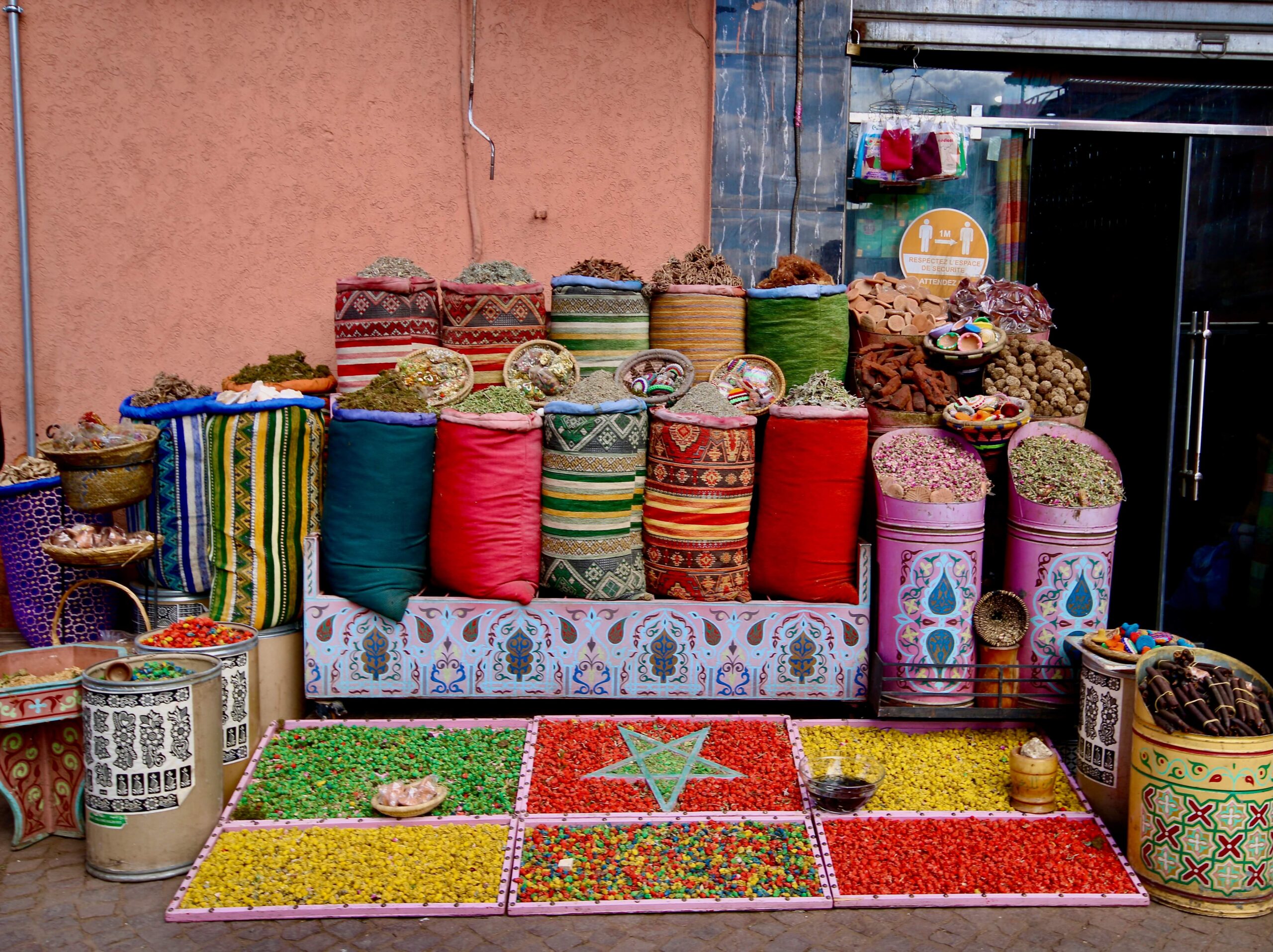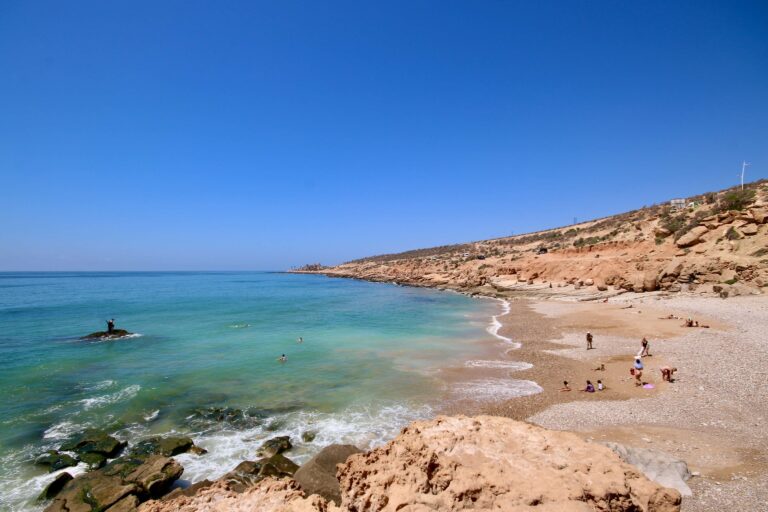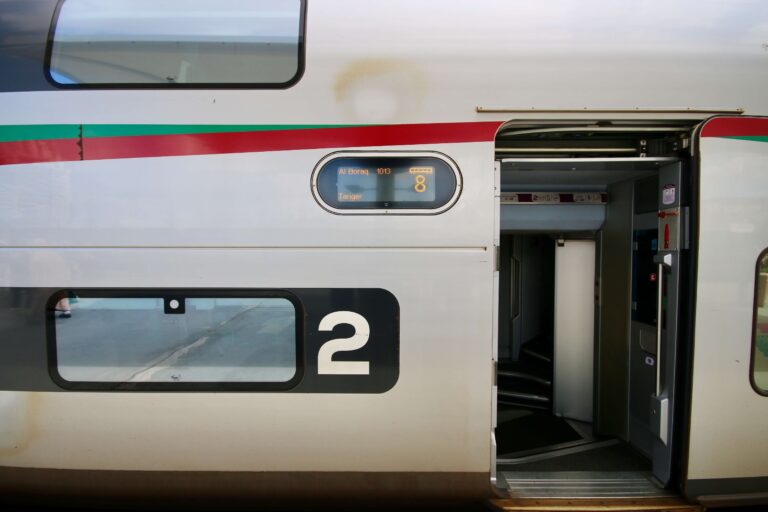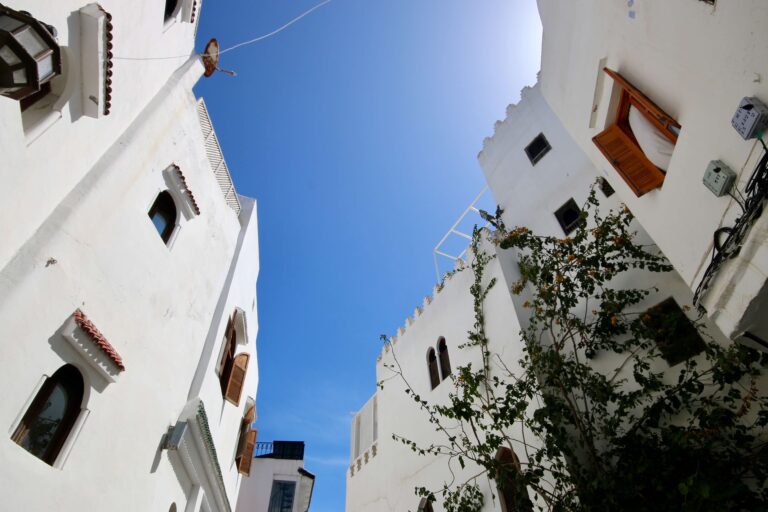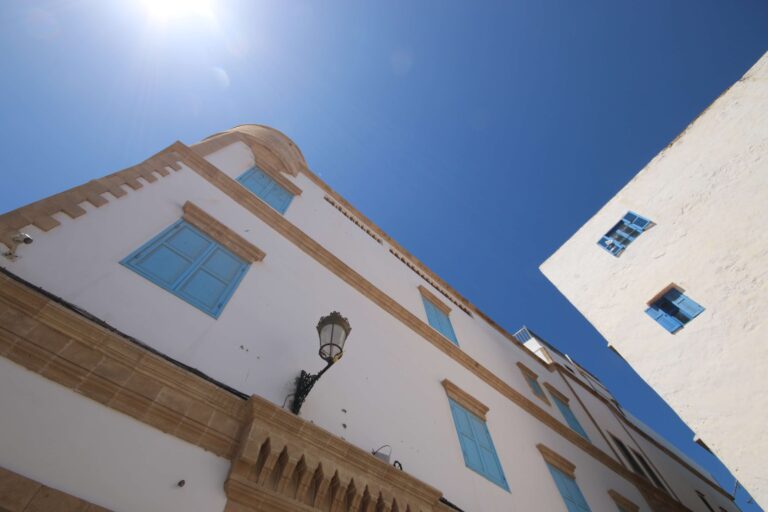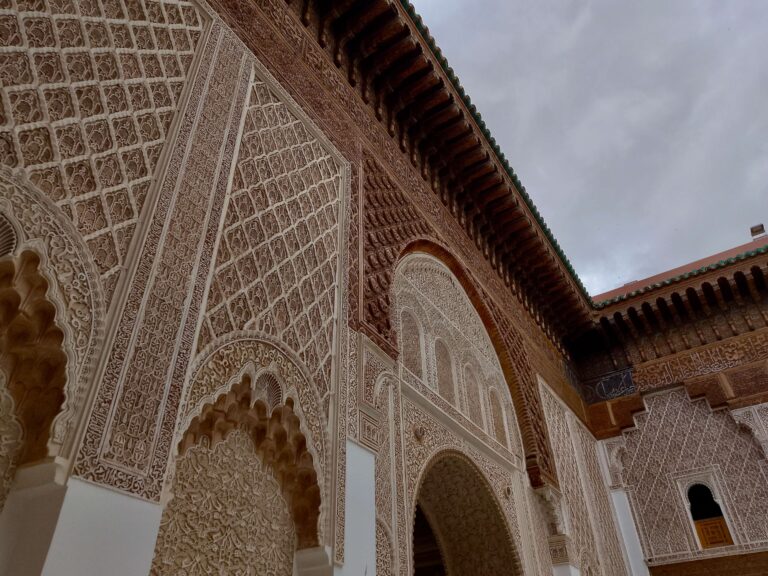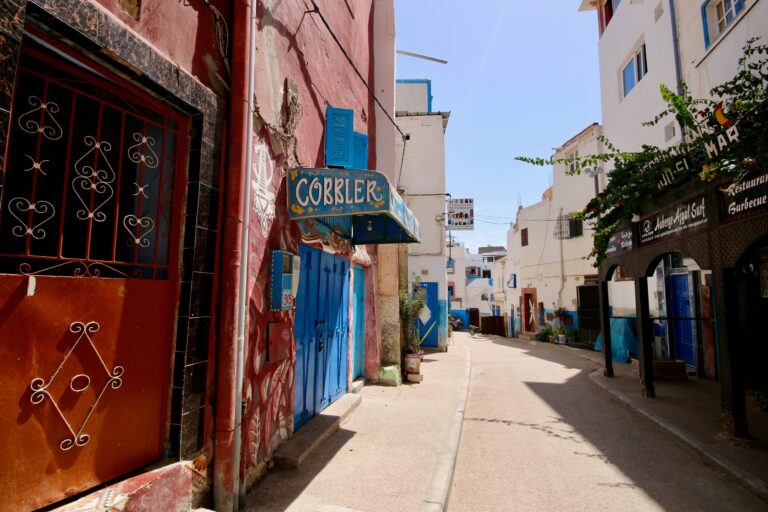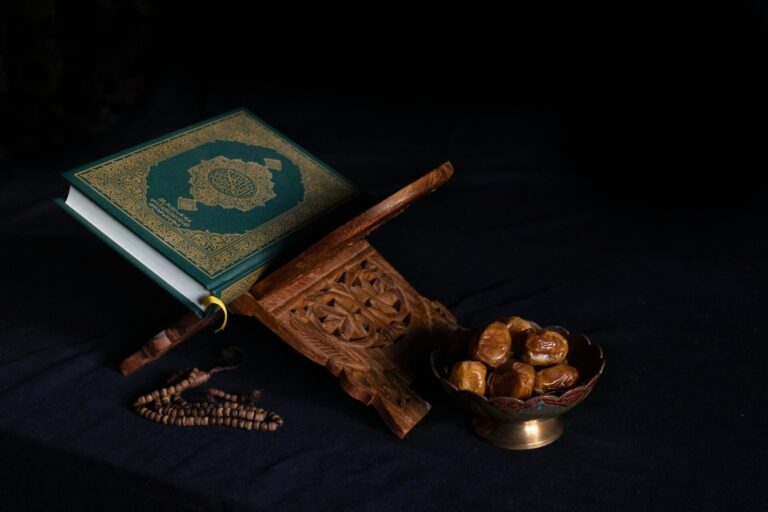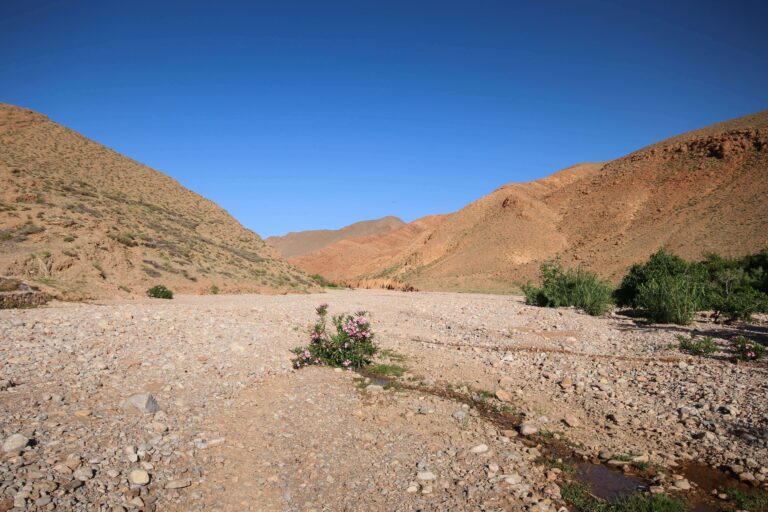A Solo Traveller’s Guide to Surviving Morocco’s Souks
Before you dive into Morocco’s souks, discover everything you need to know about navigating, haggling and shopping in the markets of Marrakech, Fes and Essaouira in this solo traveller’s guide.
There’s nothing quite like stepping into a Moroccan souk for the first time. It’s a sensory overload in the best possible way – the dizzying array of colours, the heady scents of spices and the conversations of vendors shooting the breeze with their friends.
But for solo travellers, Morocco’s souks can feel equal parts magical and overwhelming. Well, that’s how I find them anyway, even after more than 10 years in the country. The attention can be unsettling if you’re not prepared and then there’s the whole haggling thing!
Whether you’re hunting for handwoven rugs in Marrakech, shopping for ceramics in Fes or collecting art in Essaouira, navigating the souks alone is an adventure.
In this article, I’ll explain how to survive Morocco’s souks as a solo traveller and come away with purchases you genuinely love.
Want to learn more about cultural etiquette in Morocco? Check out my detailed guide for solo travellers here.
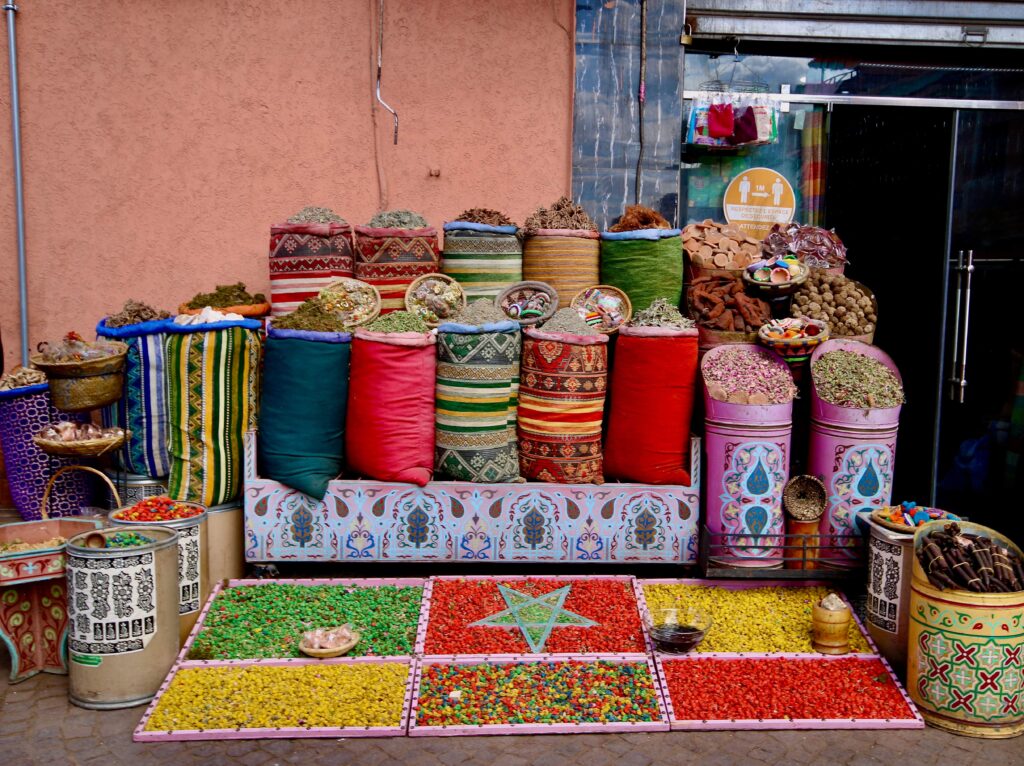
Disclosure: This article contains affiliate links, meaning I earn a small commission when you make a purchase. Affiliate links cost you nothing and ensure my content stays free!
What Exactly Is a Souk?
A souk (or suq) is a traditional marketplace – it’s usually the beating heart of Moroccan towns and cities.
Historically, these were trading hubs where caravans exchanged goods from across Africa and the Middle East. Everything from spices to carpets and leather goods was traded here, alongside fruits, vegetables and meats.
Today, all of these items are still showcased in Morocco’s souks, some of which are geared towards locals and others intended for tourist shopping.
At local souks in Morocco, you can expect to find everyday objects and household items – cookware (including tagines), djellabas and fresh produce.
Tourist souks differ in that the focus is on souvenirs and handicrafts, including lanterns, ceramics and hand-crafted rugs.
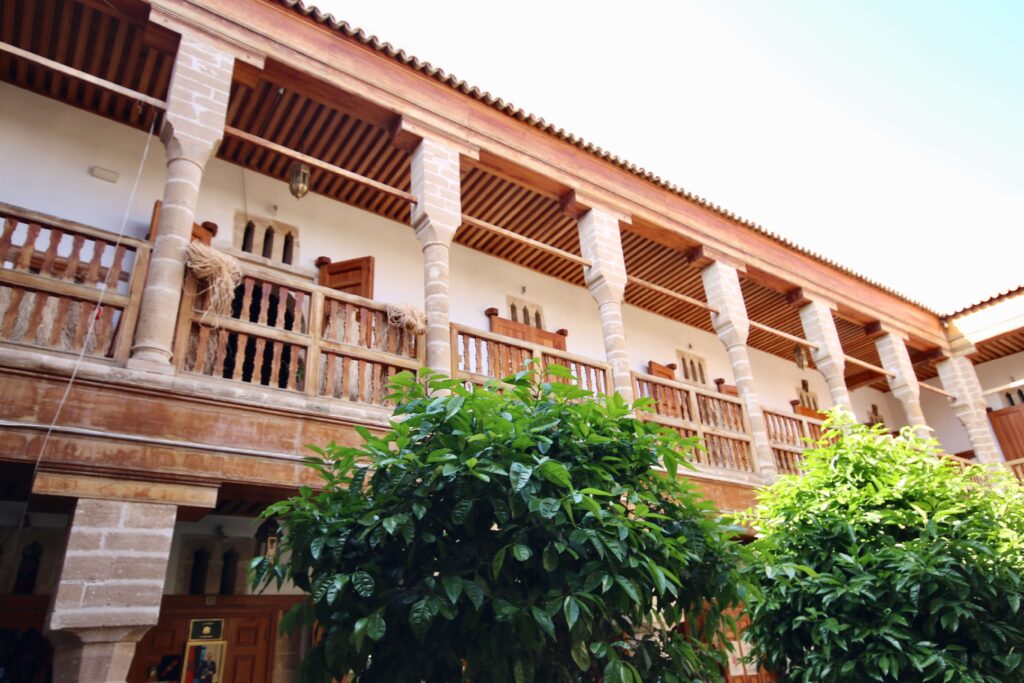
While you might envision what a Moroccan souk looks like, they actually come in a variety of shapes and forms.
Marrakech:
The “Red City” is home to some of the most famous souks in Morocco, many of which are themed around particular goods. The Marrakech souks are sprawling and it’s really easy to get lost!
Fes:
Ancient and maze-like, UNESCO-listed Fes el-Bali is home to most of the city’s souks. Aside from stalls selling run-of-the-mill souvenirs, you’ll find lots of workshops run by artisan makers.
Essaouira:
With its laid-back coastal charm, this whitewashed city is renowned for its arts scene. Expect lots of galleries selling original paintings and sculptures, alongside handicraft stalls.
Chefchaouen:
This relaxed mountain city is home to calmer souks tucked among its blue-washed streets. Rather than sprawling markets, expect individual stalls with elaborate (and highly photogenic) displays.
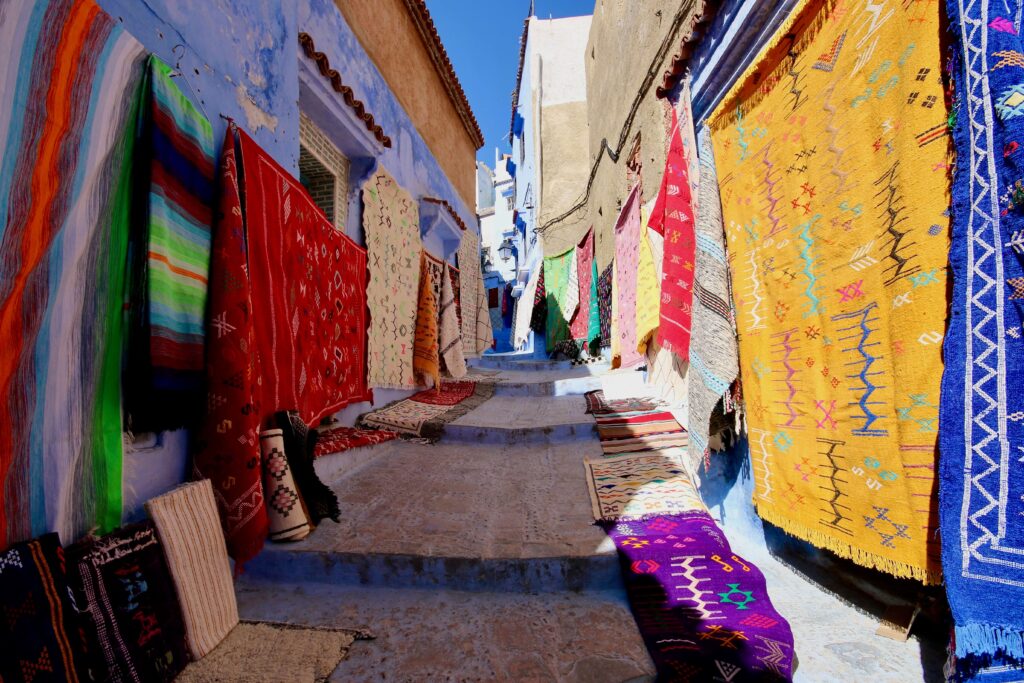
Embrace the Chaos
If you’re shopping in the souks of Marrakech or Fes, trust me when I say you will get lost – even locals do. Some of Morocco’s medinas are centuries old, with labyrinthine streets that can seem impossible to navigate.
For me, getting lost is all part of the experience – eventually I know I’ll find my way. I find that momentarily losing my bearings often leads to the best discoveries and genuine interactions with locals.
If you do get lost (and you will):
- Ask a shopkeeper or family-run café for directions. Avoid engaging with opportunistic “guides” who may ask for money or a “tip” for pointing you in the right way.
- Look for landmarks, like mosques, fountains or squares as you enter souks, then use these as your reference point when finding your way out.
- Avoid naming your hotel when asking for directions – this information can put you in a compromising situation if it’s in the hands of unscrupulous individuals.
Top Tip:
Download an offline map app like Maps.me before you go. The medinas can scramble GPS signals, but having a rough guide helps you find your way out when you’ve had your fill of haggling.
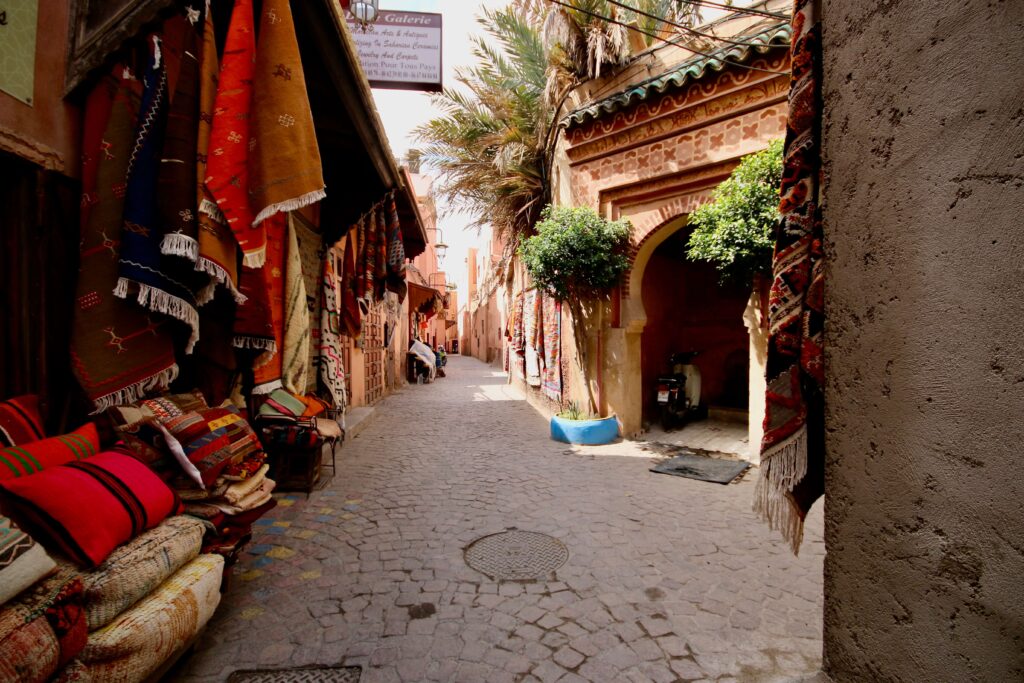
Learn the Art of Saying “No, Thank You”
Moroccan vendors are masters of persuasion, so expect plenty of attention and invitations into shops. Most are friendly and good-humoured as Moroccans love to joke and laugh!
But as a solo traveller, this can feel intimidating, even if it is well-intentioned. If you’re concerned about being drawn into situations you don’t want to be in, prepare yourself by setting boundaries with confidence.
- A polite “La, shukran” (No, thank you) goes a long way if you don’t want to engage in sales tactics.
- Keep walking if you’re not interested – lingering at stalls signals curiosity and draws the attention of vendors.
- Smiling and treating others with respect is key – being firm but friendly keeps interactions positive.
For more common Darija (Moroccan Arabic) phrases for travellers, check out my language guide here.
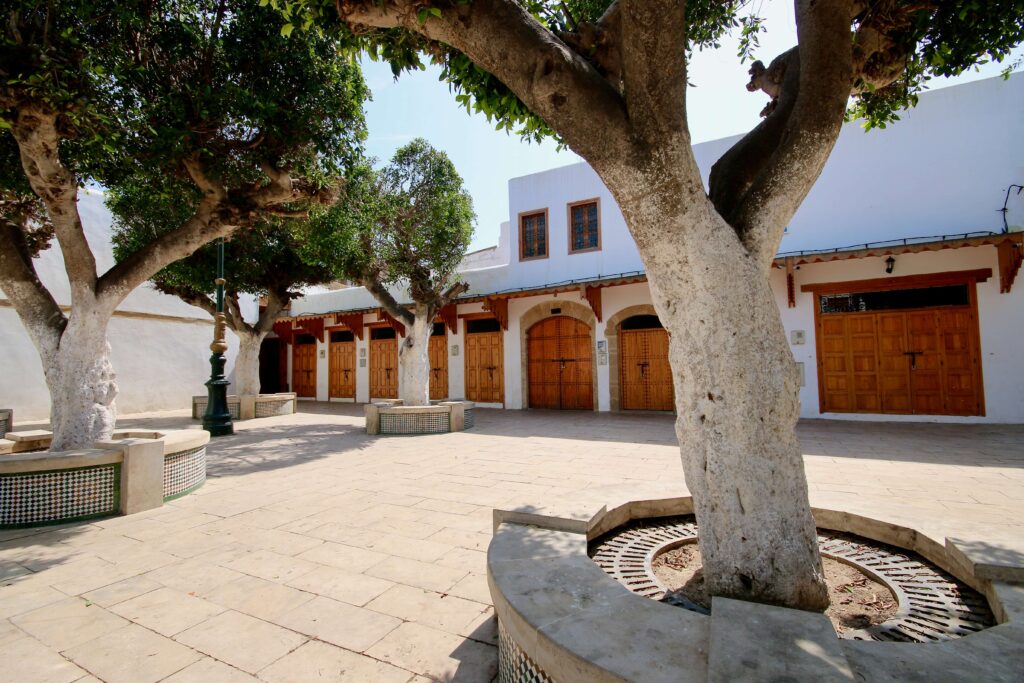
Embrace the Haggling Experience
Haggling isn’t rude in Morocco – it’s expected and customary. If you’re shopping for fruit, vegetables and other fresh produce, the price is usually fixed. That being said, there is room for negotiation if you’re buying in bulk or purchasing multiple products.
At tourist and handicraft souks, haggling is all part of the experience. The first price will likely be significantly inflated.
There are exceptions – if you see prices displayed or a sign saying “fixed prices”, that’s your signal not to negotiate.
If you’re shopping in Morocco’s souks, here’s how to haggle like a local:
- Start low – offer about half (or less) of the initial asking price.
- Stay calm – even if you really want something, don’t show too much enthusiasm until after the deal is done.
- Smile and joke – humour is a big part of Moroccan commercial transactions, so keep things light and friendly.
- Walk away (respectfully) if the price seems too high – if the vendor is willing to accept your offer, they’ll call you back.
Remember, haggling is not about getting the lowest price possible. It’s about reaching a price that’s fair for you and the vendor. As you’re bargaining, keep in mind that the vendor is just trying to make a living and support their family. So don’t haggle them into the ground!
Top Tip:
When shopping in Moroccan souks, always carry cash (dirhams) as many stalls don’t take cards. Some will accept foreign currencies (Euros, Pounds and US dollars) but not always with favourable exchange rates.
For more tips about shopping in Morocco, check out my detailed guide here.
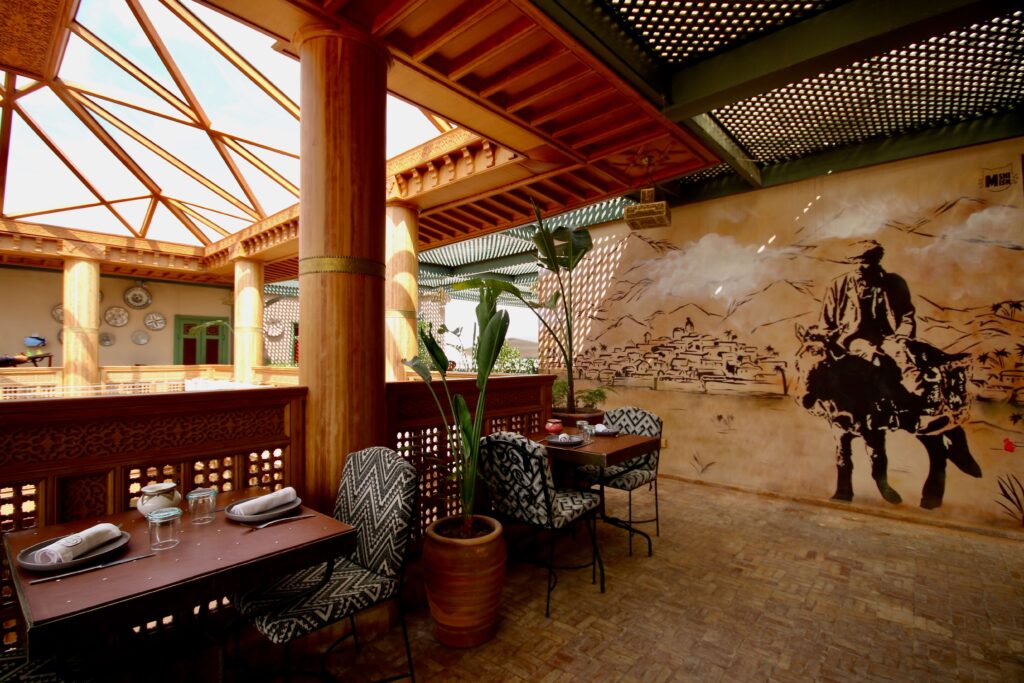
Take Regular Breaks
Exploring the souks solo can be intense, particularly if you have a long list of items on your shopping list. Between the sensory overload, crowds and haggling, it’s easy to get fatigued.
To avoid burning out, take breaks regularly. Head back to your riad for a siesta, enjoy a mint tea in a cafe or soak up the views from a rooftop restaurant.
These quiet pauses give you time to rest, rehydrate and people-watch – one of Morocco’s greatest pastimes.
Dress Comfortably and Respectfully
While shopping in Morocco’s souks, you’ll do a lot of walking. So comfort is key! When deciding what to wear, remember that Morocco is a relatively conservative country
- Women: Loose, breathable clothing that covers the shoulders and knees.
- Men: Light trousers or long shorts and short or long-sleeved shirts (avoid singlets).
- Footwear: Closed shoes or sandals with grip – the souk pavements can be uneven.
Dressing modestly also helps you blend in and attract less attention as a solo traveller.
For more information about what to wear in Morocco, check out my detailed packing guide here.
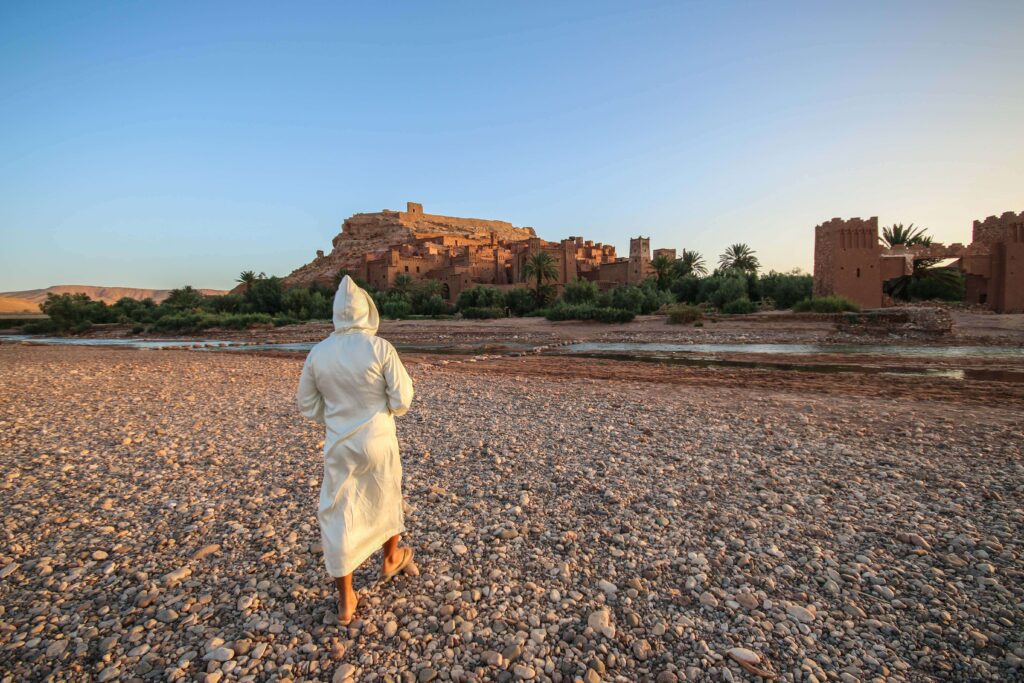
Look Beyond the Main Streets
The main thoroughfares of Marrakech and Fes are full of bright souvenirs and tourist crowds – it’s easy to gravitate here. But in my experience, the real treasures are often found in quiet corners or side streets.
I love seeking out artisan workshops: woodcarvers, weavers and ceramicists who still craft by hand. Fes and Essaouira are particularly fantastic if you’re looking for one-of-a-kind artisan makers.
If you’re unsure, hire a local guide for a half-day – they can help you explore hidden corners safely and even introduce you to local artists.
Be Street-Smart and Safe
Morocco’s souks are generally safe, especially during the day. Honestly, I have never had any issues while shopping in the souks and I don’t expect you to either.
That being said, solo travellers should stay alert and be mindful of their belongings, as with any travel destination
- Keep your bag firmly zipped closed and close to your body.
- Avoid flashing valuables or large sums of cash, which can make you vulnerable to pickpockets.
- Trust your instincts – if a situation feels uncomfortable, walk away.
- At night, stick to well-lit, busy streets or join a guided night market tour.
Generally speaking, Moroccans are protective of respectful visitors. If you ever feel uneasy, step into a shop or café and ask for help.
You can learn more tips for staying safe while travelling Morocco solo in my detailed article here.
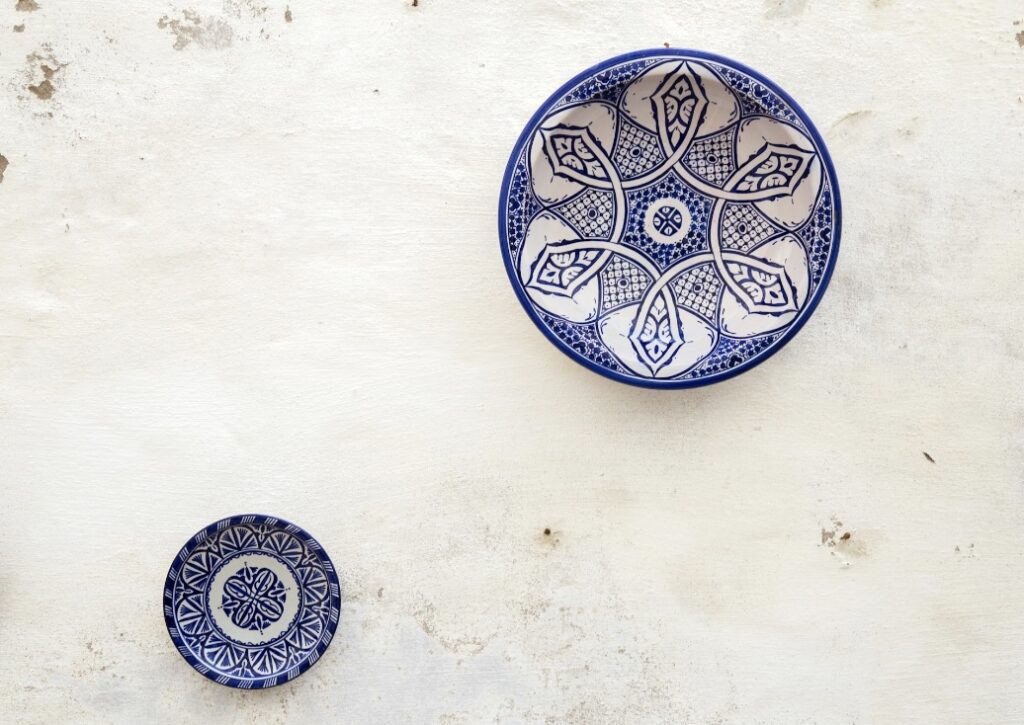
Shop with Heart and Interest
When it comes to handicrafts, every item tells a story, whether it’s an Amazigh rug dyed naturally or a handmade brass lamp. Don’t be afraid to ask questions to better understand the object’s origin story and the people involved in its creation.
Ask questions of the vendor to learn about the materials and (wherever possible) meet the artisans. Not only does it enrich your experience and add value to the item, but it also supports local craftsmanship that’s been passed down for generations.
Top Tip:
If you find a one-of-a-kind handicraft and love it, buy it! Finding that same stall again in the maze may be near impossible.
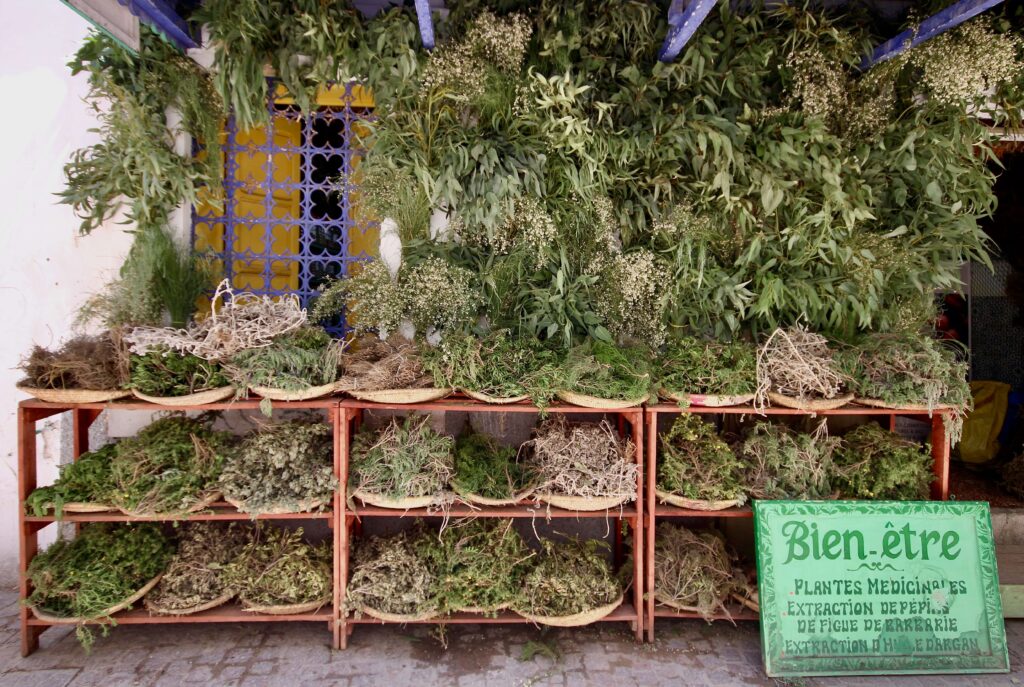
Enjoy the Chaos
The souk isn’t just a place to shop; it’s Morocco in motion. The colour, culture and opportunities for connection are unmatched and something to be embraced.
Travelling alone gives you the freedom to wander at your own pace, linger where curiosity leads and really absorb the rhythm of commercial life in Morocco. It’s solo travel at its best. Oh, and the people watching in the souks are incredible!
Rather than letting Morocco’s souks overwhelm you, enjoy the chaos and take it slow. Follow your curiosity and let the souks work their magic – it really is a quintessential Moroccan experience.
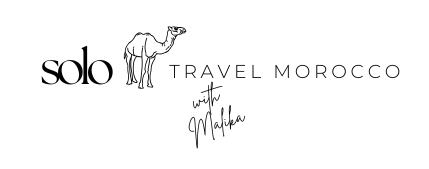
PLAN YOUR TRIP WITH MY FAVOURITE RESOURCES:
Find hotels via Booking
Book tours and attractions via Viator or GetYourGuide
Find a rental car via Discover Cars
Book flights via Kiwi or Booking
Search for buses and trains via 12Go or Omio
Get travel insurance via SafetyWing
Buy a digital eSIM with Airalo
By purchasing through my links, you’ll be supporting my website at no additional cost to you
-
When to Join a Group Tour (and When to Stay Solo) in Morocco
I think there are three types of solo travellers. Those who want to travel completely independently, those who want to join a multi-day tour for the duration of their trip and those who want to combine both. I would say I’m in the latter group. Travelling independently is usually my preferred option. But I also…
-
Is July a Good Time to Visit Morocco? A Solo Traveller’s Guide
The big question if you’re thinking about visiting Morocco in July is: Can you handle the heat? July is one of Morocco’s hottest months. Inland cities such as Marrakech, Fes, Meknes and Ouarzazate regularly see daytime temperatures climbing above 40°C. Sightseeing in the middle of the day can be exhausting and I would recommend against…
-
Are Luxury Riads in Morocco Good for Solo Travel?
When I was younger, I always stayed at budget hotels and hostels – I wanted my money to stretch as far as possible. Then, once I had a steady income and a little cash to spare, I upgraded my accommodation to what most would call “mid-range”. But it took a while longer before I felt…
-
Al Boraq High-Speed Trains: What Solo Travellers Should Know
Since it launched in late 2018, Morocco’s Al Boraq high-speed train has transformed how travellers move around the country. I’ve ridden it several times now (from Tangier to Rabat and from Kenitra to Casablanca) and it’s a really fun (and highly efficient) experience! Travelling at speeds of up to 320 km/h, Al Boraq trains are…
-
Why Morocco Is Ideal for Low-Impact Solo Travel
I often look back on the way I travelled in my 20s and realise it was all about me getting the most out of my destination. I wanted to see as much as I could on the limited budget I had available, and have lots of photos as proof of my trip. Fast-forward a couple…
-
Is June a Good Time to Visit Morocco? A Solo Traveller’s Guide
June in Morocco is somewhat special and (dare I say) one of the best months to visit the country. It sits between spring’s mild temperatures and the peak summer heat, leading many travellers to overlook it entirely. But for solo travellers who don’t have to take their annual holidays in July/August and want to avoid…

I’m Malika, an Australian-born travel writer with an intense love for Morocco. I first travelled here solo in 2014 and after meeting (and marrying) a local, I made this North African gem my home.
Over the last 10 years, I have explored the country extensively, travelling to all corners with my partner, friends and solo.
